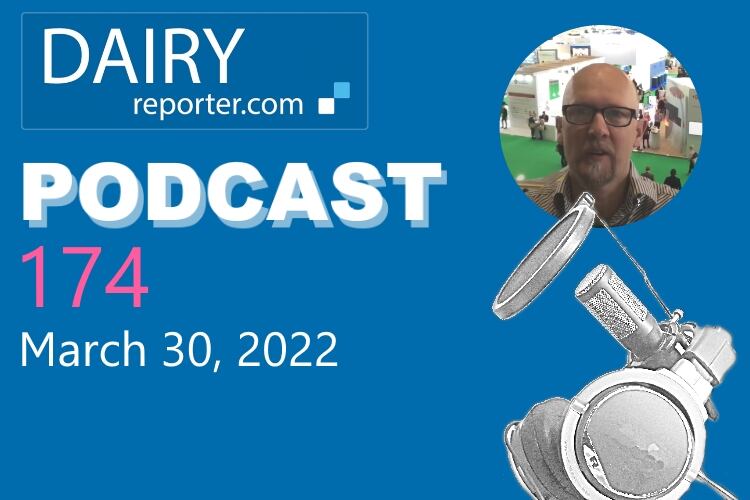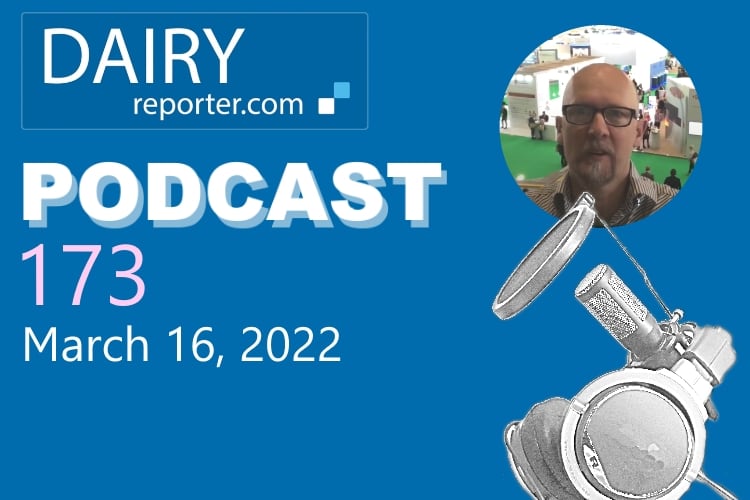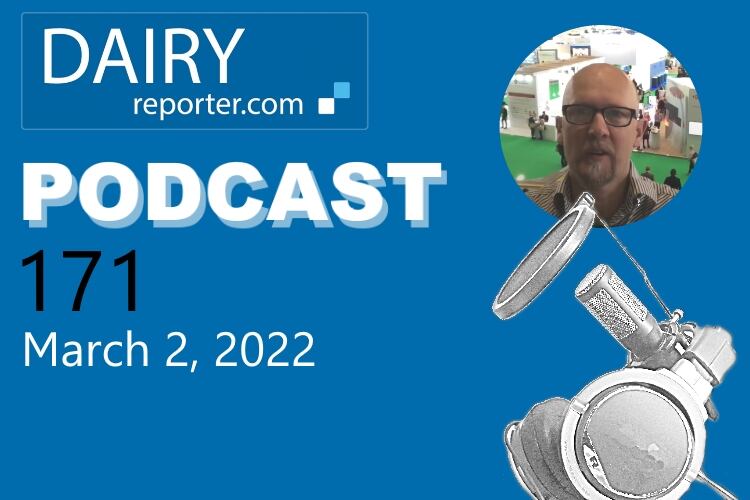We also have our weekly look at the global dairy markets with Charlie Hyland at StoneX.
PFF Group invests £2m in packaging technology at new site
UK food packaging company PFF Group has installed a £2m ($2.6m) thermoforming system at its Sedgefield site as part of a £4m ($5.3m) investment program in new process technology for packaging in the dairy industry.
Developed in partnership with German manufacturer Illig GmbH, the thermoforming system was transported to the UK on five vehicles and is the first of its kind in the world.
It will be used to manufacture PFF’s fully recyclable, food-grade packaging concept, IMPAC-T, which was launched in response to increased demand from food manufacturers for reduced plastic in packaging.
Illig designs, develops and manufactures thermoforming machines. PFF’s technical team and Illig designed a system to produce PFF’s rPET hybrid pot with a card wrap in a single process. This results in a reduction in overall carbon footprint of the product.
PFF Group CEO Andy Bairstow said, “IMPAC-T is a technological breakthrough for the manufacture of food-grade packaging in the UK. As a business, our core values are innovation, sustainability and creativity, and this system meets each of these attributes, it’s been fantastic to see both companies work closely together to deliver the project.
“PFF’s bold strategy to invest in advanced technology once again demonstrates our commitment to the complete recycling process. Using rPET gives industries like the dairy sector an opportunity to switch from traditional polypropylene to circular economy packaging.
“Our IMPAC-T product has the potential to revolutionize not just dairy, but all other food sectors where sealed-in freshness is essential and where reduced plastic and lower carbon footprint are sought after by consumers.”
Matthew Revels, sales and marketing manager at Illig, said, “We took on this exciting development project in partnership with the team at PFF nearly two years ago and this week we have the pleasure of consigning this brand-new technology to the UK market.
“This partnership between Illig and PFF has proven highly successful through each stage of the design and development process. It has produced a strong working relationship between the two teams and established sound foundations for future development projects which are already in place to meet the demands of the ever-changing packaging market.”
MILCH and Novel Therapeutics Lab working on HMO use for chronic illnesses
As medical research further dives into viable all-natural medicines, there is a form of treatment drawing interest that comes from an unlikely source – human milk.
Human milk oligosaccharides (HMOs) are the largest non-nutrient, bioactive component of human milk.
While the use of HMOs for infant nutrition – in some formulas and, of course, breast milk – is not new, the concept of potentially using HMOs for chronic illnesses is. HMOs could completely change the way we treat complex chronic illnesses such as IBS, forms of arthritis, dermatitis and more.
Dr Ardythe Morrow is Professor of Epidemiology and Pediatrics at the University of Cincinnati College of Medicine and Cincinnati Children's Hospital Medical Center. There, Dr Morrow co-directs the MILCH (Milk, microbiome, Immunity and Lactation in Child Health) and Novel Therapeutics Lab, and through her work has published extensively on breastfeeding promotion and human milk protection against infectious diseases.
PerkinElmer launches new FT-IR platform for quality and safety testing of dairy foods
PerkinElmer, Inc. has launched its new FT-IR liquid food testing platform including instruments, software and streamlined workflows.
The LactoScope 300 system, which expands PerkinElmer’s FT-IR dairy portfolio, detects key markers such as fat, protein and lactose levels in milk, cream and whey. Adulterants including urea, ammonium sulfate, maltodextrine, sucrose and water can also be detected in raw and processed milk.
Step-by-step pre-developed workflows and intuitive touch-screen and software interfaces enable users to simply place liquid samples into the instruments, push a single button and receive results on a 12-inch touch screen in under 45 seconds, allowing 60 samples to be run each hour. With the streamlined approach, new users can also learn to perform mission critical analyses in seconds.
“Dairy, wine, and other liquid foods are staple items on tables around the world and it should be simple to have access to important data to help create products that are safe and perform as expected,” said Greg Sears, VP and GM of food at PerkinElmer.
“Having intuitive, affordable and powerful testing and analysis solutions like the LQA300 and LactoScope 300 FT-IR systems gives customers the insights to make more informed, real-time decisions and take actions to improve quality, reduce waste and meet both regulatory and consumer demands.”
The new FT-IR platform is part of PerkinElmer’s food analysis portfolio spanning dairy, beverages, grain, seafood, meat, produce, oils and spices, and cannabis testing workflows.




